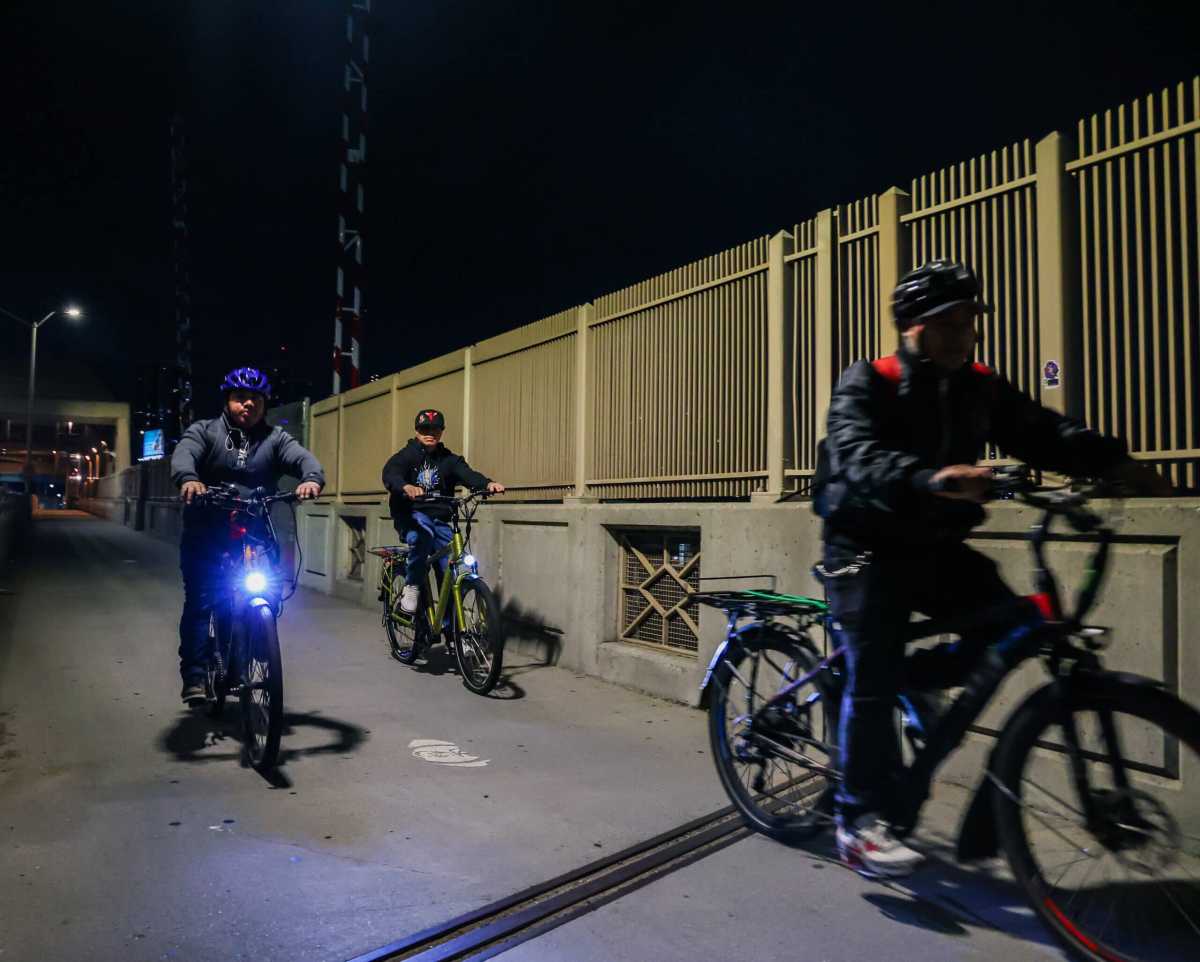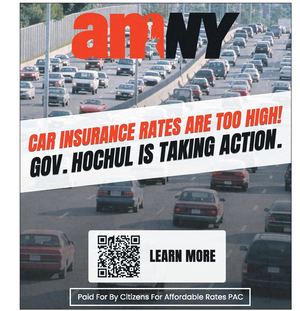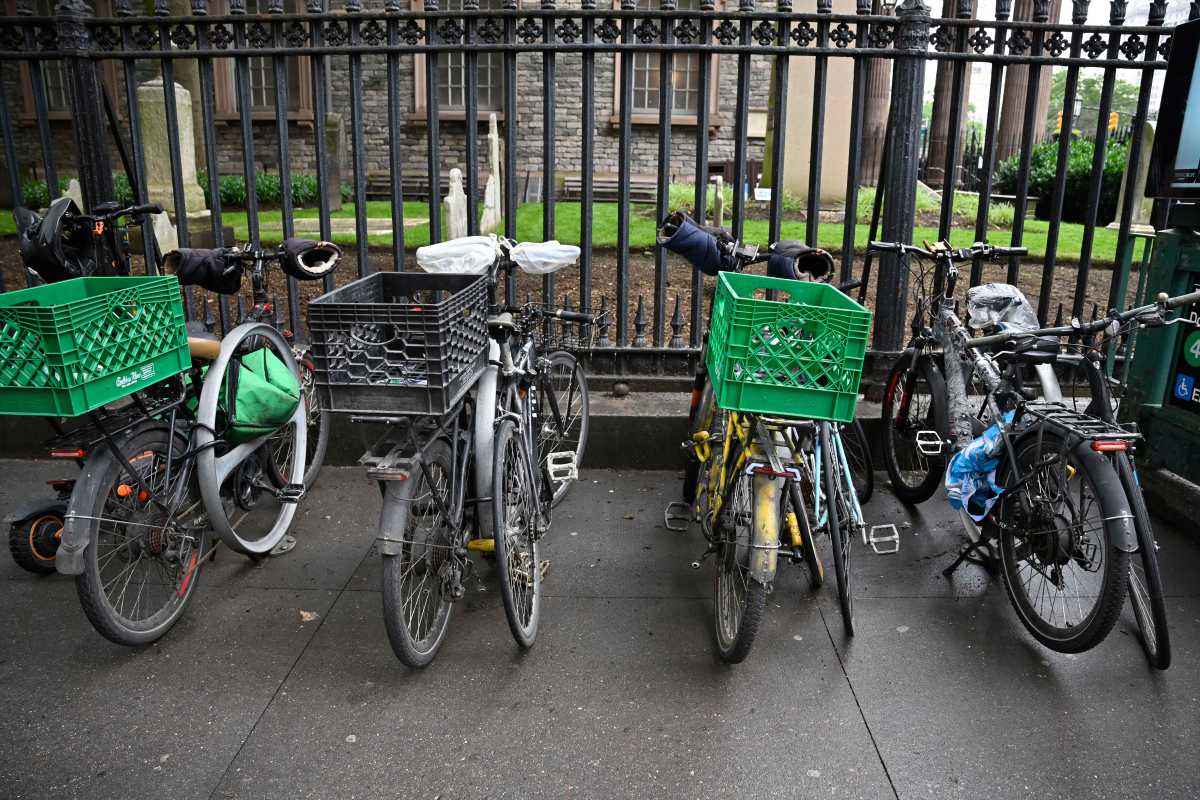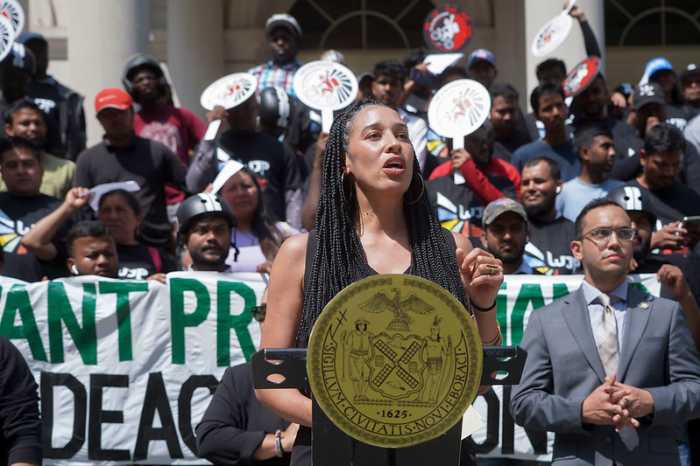Instacart, the popular online grocery delivery service, said on Wednesday that it now supports the City Council’s proposed minimum wage increase for its workers — but not without certain parameters being met.
The company underscored its stance in a letter to the council on Aug. 26 that “fully supports” the pay hike, marking a significant shift in how the business has vocalized its opinion on the topic.
While Instacart led the effort to block Intros. 1133-A and 1135-A, two bills that would give delivery app workers more money and perks, the letter to Council Speaker Adrienne Adams from Instacart executive Dani Dudeck states that the company’s concerns have always pointed to changes in business, rather than employee pay.
“As we noted throughout this legislative process, we are deeply concerned not with the individual earnings requirement itself, but with the potential for the Department of Consumer and Worker Protection (DCWP) to implement a ‘utilization-based’ requirement under the legislation, just as they did for restaurant delivery platforms a few years ago,” Dudeck, chief corporate affairs officer at Instacart, wrote in the letter.
In other words, Instacart will support the minimum pay standard of $21.44 an hour for grocery delivery workers if the DCWP does not implement a “calculating system” that would force workers to do shift work, eliminating their flexibility with hours.

Are Instacart conditions a ‘threat’ to worker schedules?
This is exactly what happened when City Hall raised the minimum wage for app-based restaurant delivery workers, Instacart reps said. Most recently, the pay for these workers in the Big Apple jumped to $21.44, which DCWP and Mayor Eric Adams announced on April 1.
“As we saw from the results of that law’s implementation, this approach threatens to completely eliminate the flexibility grocery delivery workers tell us is the primary reason they choose this work,” the letter continued.
Adams vetoed the bills on Aug. 13, but the NYC Council could override the move.
Meanwhile, some app-based delivery workers agree with Instacart that the bills should be opposed, at least as they are currently written.
Kareem Epps, who works for Instacart in Manhattan, said he already has a 9-to-5 job and does app gig work for the flexibility it offers.
“It allows me to work around my schedule in my free time and earn extra income so I can afford to live in NYC without having to sell a kidney,” the delivery worker said. Becoming an hourly employee should be each individual’s choice. This bulk can be changed so that app business should offer hourly positions with schedules to those who want it. If Instacart is forced to make me an hourly employee. I would not be able to. I would have to turn to some other source of extra income.”
Instacart has also maintained that passing the two bills as is would have other “devastating consequences” for New Yorkers, such as higher delivery costs.
Council members said on Aug. 14 that they are considering their “next steps” in the process.
Speaker Adams’s stance on the bills is that expanding protections for delivery workers remains “critical.”
“All contracted delivery workers provide essential labor, and they deserve fair workplace safety and pay standards, as we address broader safety and quality of life issues in our communities caused by delivery app corporations,” she said. “The council is proud to enact these protections into law and will continue to build on our efforts by overriding the mayor’s vetoes and passing additional laws to create a sustainable delivery sector.”








































